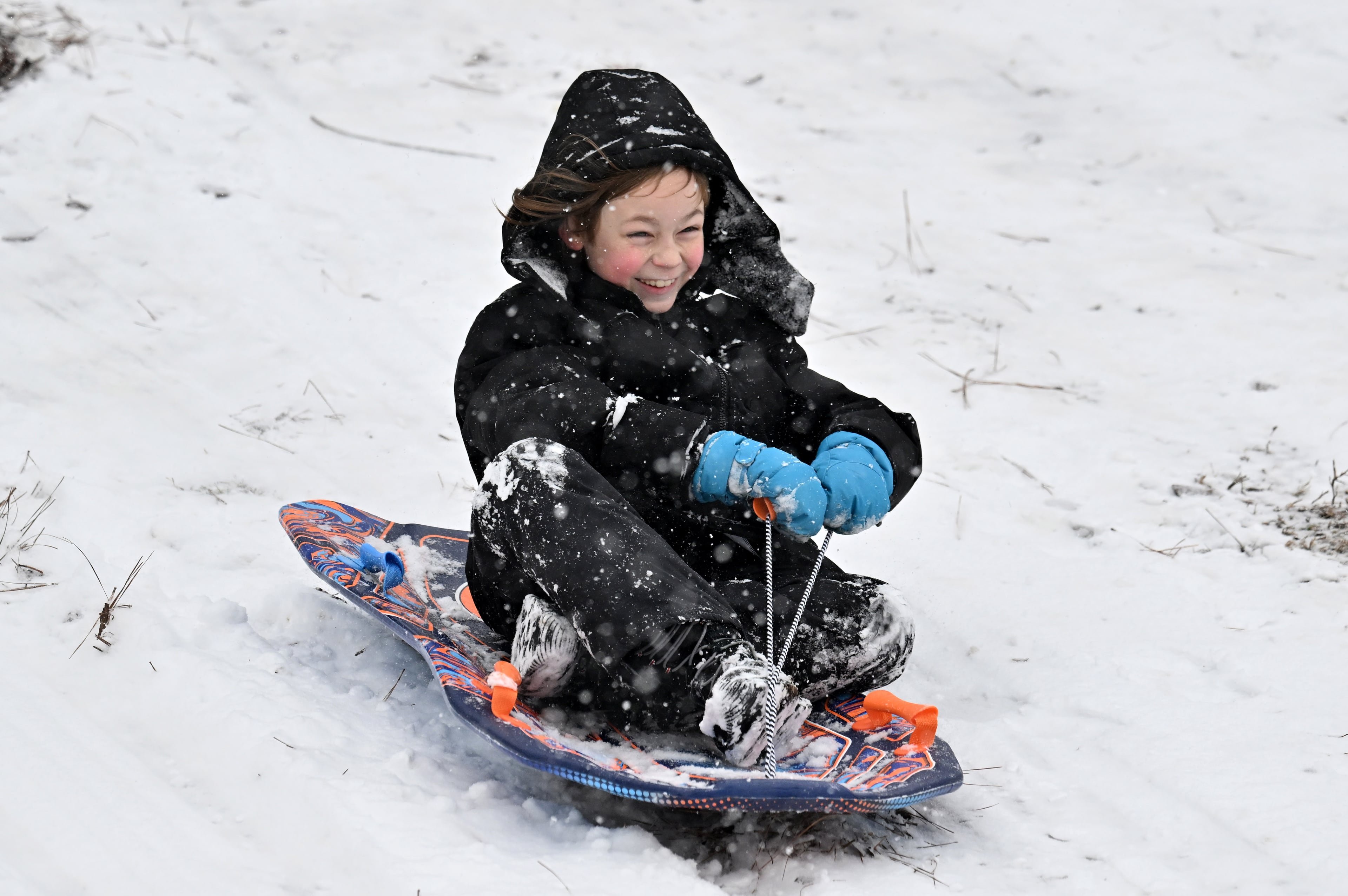How do I ...? FAQ about a power outage
Before strong storms arrive in metro Atlanta, you should prepare for a power outage.
Here are some things to know in case you lose your electric service:
How do I heat my home if it’s wired only for electric heat?
Non-electric, unvented space heaters can be a hazard. Use them only in well-ventilated areas. If you use an electric generator, plug appliances directly into it. Never plug a generator directly into your home’s electrical wiring. Disconnect or turn off appliances you were using when the power went off, and leave one light on to tell you when service is restored.
How do I cook if I have only an electric stove?
Cook with a camp stove, fireplace or can of Sterno (cooking fuel). Never use charcoal or other fuels in unventilated areas. Stock up on nonperishable foods, heating fuel and medicine.
What about the food in the fridge?
Avoid opening refrigerators or freezers. Food will stay frozen in a fully loaded freezer for 36 to 48 hours if the door is closed. In a half-full freezer, food will keep 24 hours. If you plan to eat refrigerated or frozen meat, poultry, fish or eggs while they are still at safe temperatures, it’s important that each item is thoroughly cooked to the proper temperature to make sure any foodborne bacteria are destroyed. However, if the food was ever above 40 degrees Farenheit for two hours or more, discard it.
What happens if my child gets sick?
If there is a medical problem, parents should call their pediatrician first and can always call the Children’s Healthcare’s advice line at 404-250-5437, said Dr. James Fortenberry with Children’s Healthcare of Atlanta.
How do I find a shelter?
To find open shelters and warming centers throughout the state, check the Red Cross website here.
What about clean water?
Fill your bathtub and spare containers with water in case your electric water pump or the local water system goes out.
What can I do to protect my loved one's medications?
Refrigeration is the suggested method of storage for certain prescriptions such as eye drops and insulin. Papatya Tankut, vice president of pharmacy affairs for CVS pharmacy, suggests trying to move the meds to a working refrigerator during a power outage.
If this isn’t possible, she says to avoid opening the refrigerator door. This will help keep the prescriptions cool as long as possible. If the power is out more than a few hours, you should discard any medications that need to be refrigerated. The only exception to this rule, according to Tankut, would be if your loved one needs a particular prescription to live (insulin, for example). In these instances, she says it’s better to use the medicine until a fresh supply becomes available. Replace any potentially compromised medications with a new prescription as soon as you can.
Will the cellphone network continue to work?
Most of the problems with cellphones during storms are because so many people were trying to use their phones at the same time. The cell towers just can’t handle all the calls at once.
Fortunately, cell towers generally don’t depend on phone wires hung on poles that are vulnerable to falling branches and trees. Cell sites also have generators — which the companies say they have filled with fuel — so they can keep going without electricity.
If power outages drag on, companies refuel those generators. AT&T says it also has back-up batteries.
But will my cellphone keep working?
So long as your cellphone is charged and so long as your local cell tower keeps operating, you should be able to use your phone.
What’s the best way to use a cellphone and prolong how long it works?
Phone companies suggest:
- If you have trouble, try texting. A message may move more quickly than a voice call.
- If you get a “fast busy,” that means the network is congested. Hang up and try again in a few seconds.
- Save your calling for urgent messages. Limit stress on the system and prolong your battery life.
- Pick someone who lives out of the area for family members to contact if they are separated and need to pass along information.
- If your batteries are running low, set a time in advance for communicating with family. Turn your phone off until then.
- Program emergency numbers (like police, fire and power companies, as well as family) into your phone.
- Turn off the vibrate function, which uses more power.
- Don’t use other extra features, such as the internet, Wi-Fi, GPS and camera.
Download apps from aid and relief groups, such as the Red Cross or FEMA. Establish an “on air” time for when batteries are running low as part of an emergency communications plan with family and friends (power up wireless device during designated times only).
What if my cellphone has lost power?
If you have lost power and need to charge your phone, you can use a car charger, says Charles Greiner, co-owner of Onyx Consulting Inc. Depending on how your car is wired, you may need to turn the key in the ignition to get your cigarette lighter port to turn on and charge your phone. You could also charge your cellphone from a fully charged computer, Grenier says.
To report an outage:
Central Georgia EMC
770-775-7857
Cobb EMC
770-429-2100
Coweta-Fayette EMC
770-502-0226
Georgia Power
1-888-891-0938
GreyStone Power Corp.
770-942-6576
Habersham EMC
706-754-2114
Jackson EMC
1-855-422-7600
Snapping Shoals EMC
770-786-3484
Sawnee EMC
770-887-2363
Walton EMC
770-267-2505
Sources: Georgia Power, U.S. Food and Drug Administration, Georgia EMC, AgingCare.com, AT&T, Verizon, T-Mobile, AAA

